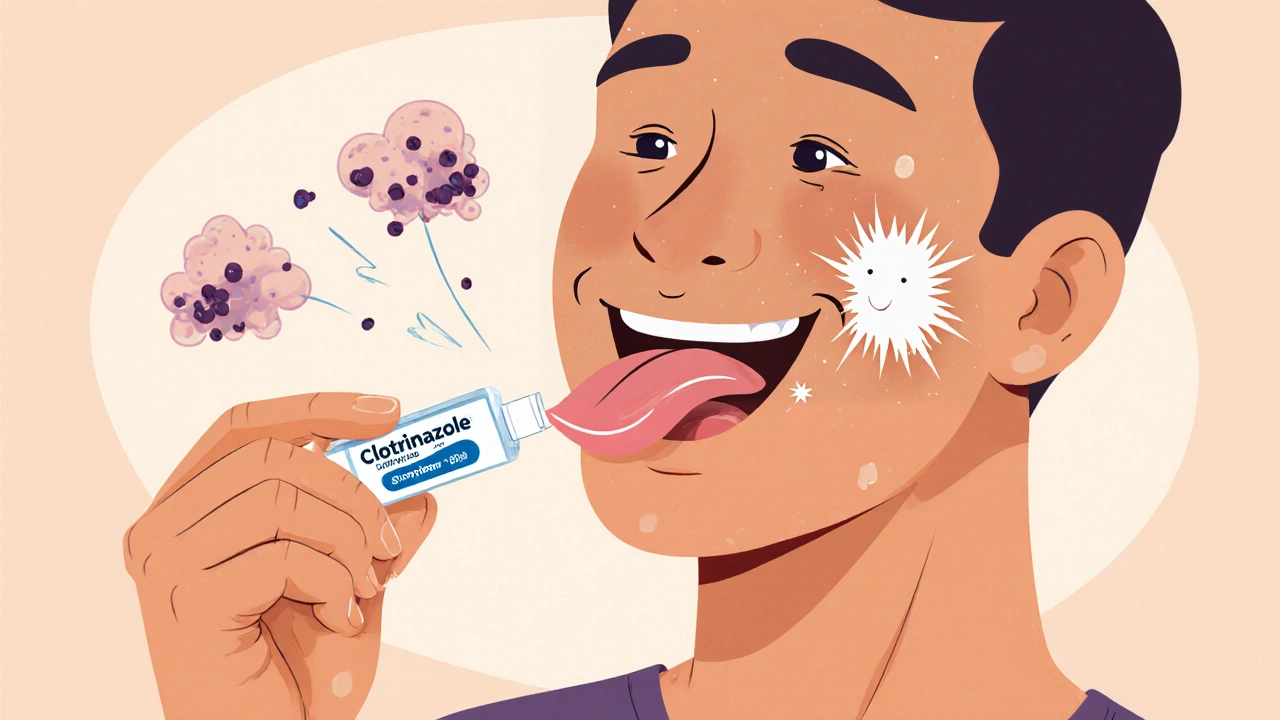Fungal Mouth Infection: Causes, Treatments, and What You Need to Know
When you get a fungal mouth infection, a common overgrowth of yeast, usually Candida albicans, in the mouth and throat. Also known as oral thrush, it shows up as white patches, soreness, or a cottony feeling that won’t go away with brushing. It’s not rare—especially in men over 50, those on antibiotics, or anyone with dry mouth or diabetes. This isn’t just a minor annoyance; left unchecked, it can spread, make eating painful, and even signal deeper health issues.
A Candida albicans, a type of yeast naturally found in small amounts in the mouth and gut is the usual culprit. Normally, your immune system and good bacteria keep it in check. But when antibiotics wipe out those good bacteria, or when your immune system is down from stress, illness, or steroid use, Candida takes over. Men using inhaled corticosteroids for asthma or COPD are especially at risk—unless they rinse their mouth after each use. Dry mouth, whether from medications, smoking, or aging, also creates the perfect environment for this fungus to thrive.
It’s easy to mistake a fungal mouth infection for something else—like a sore throat or canker sore. But if you see creamy white patches that bleed when scraped, or if your taste feels off or you have a burning sensation on your tongue, it’s likely not just irritation. You don’t need a fancy test to confirm it—your doctor can often spot it by looking. But if it keeps coming back, that’s a red flag. Recurring fungal mouth infections can point to undiagnosed diabetes, HIV, or even a vitamin deficiency. And while over-the-counter antifungal treatments like nystatin or clotrimazole lozenges help, they’re not always enough. You might need a stronger prescription, especially if the infection spreads to your esophagus.
What works best? It’s not just about popping pills. Managing a fungal mouth infection means fixing the root cause. If you’re on inhalers, rinse after every use. If you’re diabetic, get your blood sugar under control. If you smoke, cutting back helps more than you think. Good oral hygiene isn’t optional—it’s your first line of defense. Brush twice a day, clean your tongue, and avoid sugary foods that feed the yeast. Probiotics might help restore balance, but don’t rely on them alone. And never ignore a persistent mouth issue thinking it’ll just go away.
The posts below give you real, practical advice on what to do when this happens. You’ll find guides on antifungal treatments that actually work, how to prevent recurrence, and how other conditions like diabetes or dry mouth make you more vulnerable. No fluff. No guesswork. Just clear, direct info to help you take back control.
Clotrimazole lozenges are a targeted, effective treatment for oral thrush, working directly in the mouth to kill fungal overgrowth. Learn how to use them right, what to expect, and how they compare to other options.

